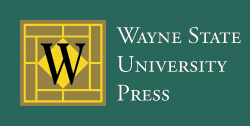Abstract
This essay analyzes how the literary modes of realism and modernism coexist and interact in Christina Stead’s novel Seven Poor Men of Sydney. More than just representing a formal tension between a dominant (realist) and an emergent (modernist) mode of literary writing at a particular juncture in Australian literary history, the clash between the two in Stead’s novel stands in for deeper political tensions, particularly between individualist and collective responses to capitalist modernity. Engaging with Australian scholarship on Stead’s writing, Gawen argues that the novel can be productively thought about in relationship to the tradition of Western Marxism, particularly through the work of György Lukács and Walter Benjamin. Recent scholarly interest in making the claim for a “Red Stead” recognizes the central importance of communist politics to Stead’s life and work. The essay extends this understanding by reading Stead as being responsive to changes brought about by modernity that led to the articulation of a left-wing political and artistic vision.
Recommended Citation
Gawen, Naish
(2020)
"Modernity in the Antipodes: Politics and Aesthetics in Christina Stead’s Seven Poor Men of Sydney,"
Antipodes: Vol. 34:
Iss.
2, Article 3.
Available at:
https://digitalcommons.wayne.edu/antipodes/vol34/iss2/3
